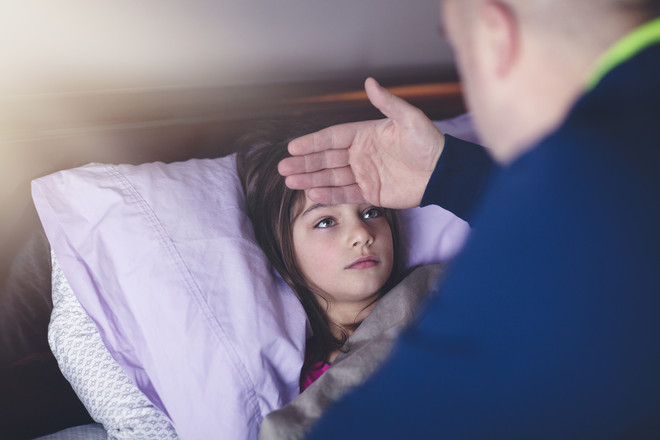Causes of vomiting
Vomiting in young children can be a consequence of poisoning or a symptom of a disease of various body systems. Vomiting in a 2-year-old child is usually accompanied by other symptoms Photo: Getty Its causes are:
Vomiting in a 2-year-old child is usually accompanied by other symptoms Photo: Getty Its causes are:
- Problems with the gastrointestinal tract and metabolismsubstances. Vomiting is accompanied by diarrhea, fever, abdominal pain. In vomit masses may be an admixture of mucus or blood. It is characteristic for gastritis, foreign matter in the gastrointestinal tract, acute intestinal infections.
- Diseases of the central nervous system.Cerebral vomiting occurs due to increased intracranial pressure, as a result of a head injury, concussion or brain contusion. The child becomes lethargic, has a headache and a decreased pulse.
- Manifestation of neurotic reactions. This is a functional vomiting, which can be triggered by an emotional state, for example, violent excitement or fear. It occurs without other disorders in the body. For such children, a psychologist or psychotherapist is needed.
In addition, the child's body may respond with vomiting to medications taken or other infectious diseases. Only a specialist can determine the general condition of the child and the nature of vomiting.
How to stop vomiting
Uncontrollable vomiting can lead todehydration and other pathological changes. Essential salts are washed out of the body along with vomit. To prevent this, give the child saline solutions in small proportions. Give two-year-old children 1 tbsp of solution every 15 minutes or 2-3 tsp every 5 minutes until vomiting stops. You can use a glucose-salt solution "Rehydron", which is best alternated with water. It is desirable that the child is in an upright position, but if he is lying down, then turn his head to the side and raise it by about 30⁰ to reduce the urge to vomit.
What you do not need
Before the doctor arrives, you should not do the following:
- Give the child painkillers, antiemetics or drugs that affect bowel function (Cerucal or Motilium).
- Rinse the stomach if the patient is unconscious.
- Use antibacterial drugs or antiseptics.
Treatment with medications can only be prescribed by a doctor after examining the child. In each case, seek help from specialists, especially if the attacks occur repeatedly.









